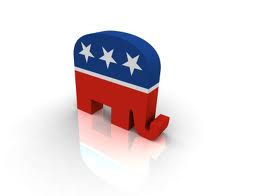Guess whose photo appears right underneath an article in the latest edition of The Economist with the headline, “The silence of the right: Social conservatives and the tea-party movement are still waiting for their candidate in the Republican nomination race?”
 With Mike Huckabee out of the presidential race, there is much debate about which candidate will garner the bulk of the social conservative vote in the upcoming Republican nominating contest. Why is this segment of Republican primary voters so crucial? Numbers don’t lie. ABC’s former polling director Gary Langer found that, “In 2008, self-identified evangelical Christians constituted 44 percent of all Republican presidential primary voters.”
With Mike Huckabee out of the presidential race, there is much debate about which candidate will garner the bulk of the social conservative vote in the upcoming Republican nominating contest. Why is this segment of Republican primary voters so crucial? Numbers don’t lie. ABC’s former polling director Gary Langer found that, “In 2008, self-identified evangelical Christians constituted 44 percent of all Republican presidential primary voters.”
Evangelical Christians represented a majority of 2008 GOP Primary voters in 11 of the 29 states in which exit polls were conducted. In Iowa and South Carolina . . . evangelicals provided exactly 60 percent of the vote. In 10 other states, including many outside the Deep South, evangelicals represented between one-third and 46 percent of the vote.
If those numbers are not enough to convince you about the impact of social conservative voters, take a look at the map here and focus on the percentages in states like Ohio, Florida, Texas, and even California.
In a field missing the former Baptist minister, turned governor, turned national candidate, turned cable news host, the social conservative vote is up for grabs like never before. True, not all social conservatives, especially those outside the South, voted for Huckabee in 2008 and plenty more have become what my friend David Brody from CBN News calls “Teavangelicals.” These newly classified evangelical voters are looking for a candidate with solid social issue credentials combined with a questionable commitment to the implementation of tea party-style economic policy and federal government reforms. There was already some evidence that this group – the dominant force in tea party politics – was weary of Huckabee’s fiscal record as governor of Arkansas.
Moments after Huckabee announced that he was not running, former Minnesota Governor Tim Pawlenty did not waste any time making his intentions known to a group of voters who had just lost their candidate. Governor Pawlenty said, “I plan to work hard to earn the support of the millions of Americans who have supported him.” There is no doubt that Pawlenty will need social conservatives to propel his campaign to a high-priority Iowa Caucus victory. Huckabee won Iowa because of social conservative voters, and Pawlenty chose Iowa to make his formal entry into the Republican presidential primary.
While Pawlenty is viewed as a top tier candidate in the GOP field and one who should benefit from Huckabee’s absence, he will be competing with well-known social conservative favorites like Rick Santorum, Herman Cain, Newt Gingrich, and potentially Minnesota Congresswoman Michele Bachmann.
Evangelicals will get a good look at all of these candidates – those who have made it official and others who are still waiting to formally announce – when they appear next month at what is now the most influential social conservative event to kickoff the 2012 presidential election: the Faith and Freedom Coalition Conference and Strategy Briefing on June 3rd and 4th in Washington, DC.
Ralph Reed, chairman of the coalition, pointed out in an email to me that, “The Faith and Freedom Conference will witness the very first time every one of the major GOP contenders will be on the same stage in the 2012 election cycle. These candidates will be making the case to tea party members and social conservative voters about why they are best suited to lead the charge against President Obama next year.”
All of the serious contenders will be speaking directly to social conservatives, many who are now “Teavangelicals” whether they know it or not.
Mitt Romney – who made real inroads with social conservative voters in 2008, Jon Huntsman, Tim Pawlenty, Newt Gingrich, Herman Cain, Rick Santorum, Michele Bachmann, Ron Paul, and the potential candidate of the moment, Paul Ryan, are all participating because they know the social conservative vote can make or break their campaign.
After the conference, we can move from speculating about who social conservatives are interested in to a much more important question:
Will a sizeable majority of social conservatives get behind one or two candidates now or keep their support scattered amongst the GOP field until the race tightens?
LifeNews.com Note: Jordan Sekulow is a pro-life attorney, the host of the Jordan Sekulow Show, and the ACLJ Director of Policy and International Operations. This article originally appeared in the Washington Post and is reprinted with permission.







